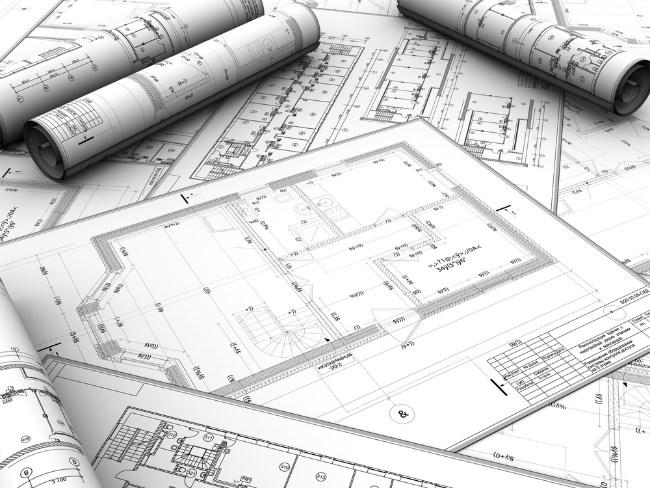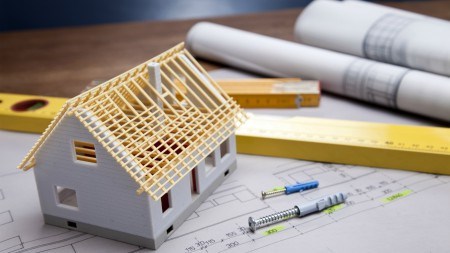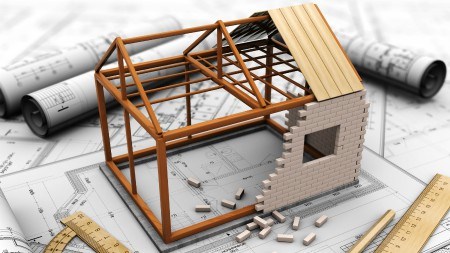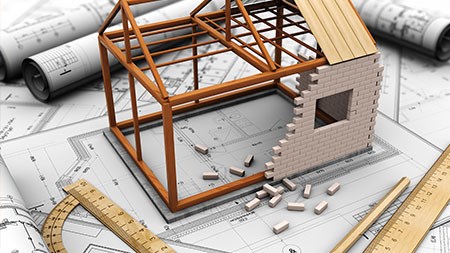Don’t get caught making one of these mistakes or your building plans could turn into a nightmare.
If you decide to build your own home or renovate your current home, there are a few giant no-no’s to take heed of, in order to have the most successful project.
Before you get started on the building process, make sure you avoid these serious building fails:
Not doing your homework
You need to know what you’re getting yourself into, before you embark on a project of this nature. Even though you are not doing the work yourself, it’s important to do your homework before you do anything else. Knowing what to look for in a contractor will go a long way to helping you select the right person, and could save you time and money in the long run. Understanding the process and the work that needs to be done will mean that you can keep a close eye on everything, and make sure that the project stays on track.
Getting a cheaper contractor to save money
Good contractors are worth paying a little extra for. Don’t take the cheap way out and try to get a contractor who charges much less than the going rate, it is likely that their work will not be of a high standard. Get a few quotes from different contractors and compare them, to see who is on track with the norm. Using a project manager is a smart way to go, as they generally have good relationships with their sub-contractors and can get things done in a more affordable way, without compromising on quality.
Using unqualified workmen or contractors
Many people take it for granted that a contractor has properly qualified, registered and insured workmen, but this is often not the case. Make sure that your contractor has fully qualified workers, to avoid mistakes being made or work needing to be re-done. Builders in South Africa need to be registered with the National Home Builders Registration Council (NHBRC) who regulate the home building industry. Lanice Steward, managing director of Knight Frank Residential SA says, “If you are using a property developer who subcontracts to a construction company, both of these companies have to be registered as a homebuilder in terms of the Housing Consumer Protection Measures Act”. It’s also a good idea to check your contractor’s trade references and make sure that their previous customers are happy with the quality of their work.
No written contract
Don’t make the mistake of thinking that a one-page quote from your contractor and a handshake is good enough. A properly drawn, legally binding, written contract is essential to ensure that both you and your contractor are covered, in the event that someone does not live up to their end of the deal. This includes any changes that are made during the process – these should be done in writing and agreed upon by both parties first, before any of the work is done. This is to cover both parties, in the event that the changes add to the total cost of the project.
Not sticking to budget and payment terms
Many people do not make sure that their payment terms have been solidified in writing. They then run the risk of being blackmailed into paying extra before the job is finished, or overspending on the project. Contractors can threaten to not complete a part of the project until more money has been received, by claiming that they need more funds to purchase materials. Be careful not to fall victim to such blackmail and make sure that you put all payment terms in writing, and perform quality checks.
When building your own home, you can have your bank keep control of your funds and do all valuations and approve the payments.
If you’re building a home, you should make provision for an additional 20% more than what you had estimated as the total cost. There are unforeseen issues that can crop up and this invariably means that building projects end up costing more than you had bargained for.
Not creating a solid foundation
A solid foundation is the best base for your building and is imperative for long lasting structures. It’s important to hire a professional to analyse your soil in order to have the correct footings used in relation to the soil that it present. Expansion joints can be placed in strategic places to allow for settlement and movement. Getting a solid foundation will prevent structural cracks from forming, and save you lots of money in repair work.
Making late changes

Many people want to make changes after their building plans have been finalised and the engineer has deemed the plans to be structurally sound. This is not advisable and often creates many problems along the way, as well as increases costs when professional alterations need to be done. Make sure you know what you want and try not to change your mind once the plans have been finalised and approved.
Acting as your own general contractor
You may be of the opinion that you don’t need a general contractor and that you could go it alone and find your own sub-contractors. This method is not advisable, due to a number of reasons:
You do not have a relationship with any sub-contractors and they will never be working with you again so, they will most likely not make you a priority, or give you the same rate that they would give a general contractor or project manager.
You do not have the knowledge to monitor the quality of work being done on your home and this may end up costing you a lot of money if things need to be corrected or repaired afterwards.
Not taking into account the HOA rules and regulations
If you live in an estate or are building in a development, don’t forget to check what the Homeowners Association’s prescribed guidelines are for building or renovating. These guidelines could pertain to the size of the home, the size of certain structures, as well as the materials that you can use. It’s a good idea to submit your building plans to the HOA for approval, before continuing with the project.
Taking inaccurate measurements
It’s not sensible to guess measurements for your project and then supply inaccurate measurements to your contractor. This can jeopardise your project and will mean that work will have to be re-done, which costs time and money. Make sure you have measured correctly and taken the exact measurements required, to avoid unnecessary expenses and extra work.
Not using ‘green’ materials
It is a common misperception that ‘green’ materials are more expensive than regular materials, however, this is not always the case. In the long run, ‘green’ materials are the best choice you can make, and a good investment for your home that will save you money eventually and help the environment. It’s a win-win!
The bottom line is to make sure that your foundation is solid, you have a trustworthy contractor who is qualified and registered, your deal is in writing and you stick to your payment terms. Following this advice should be a recipe for success for any building or renovation project.





